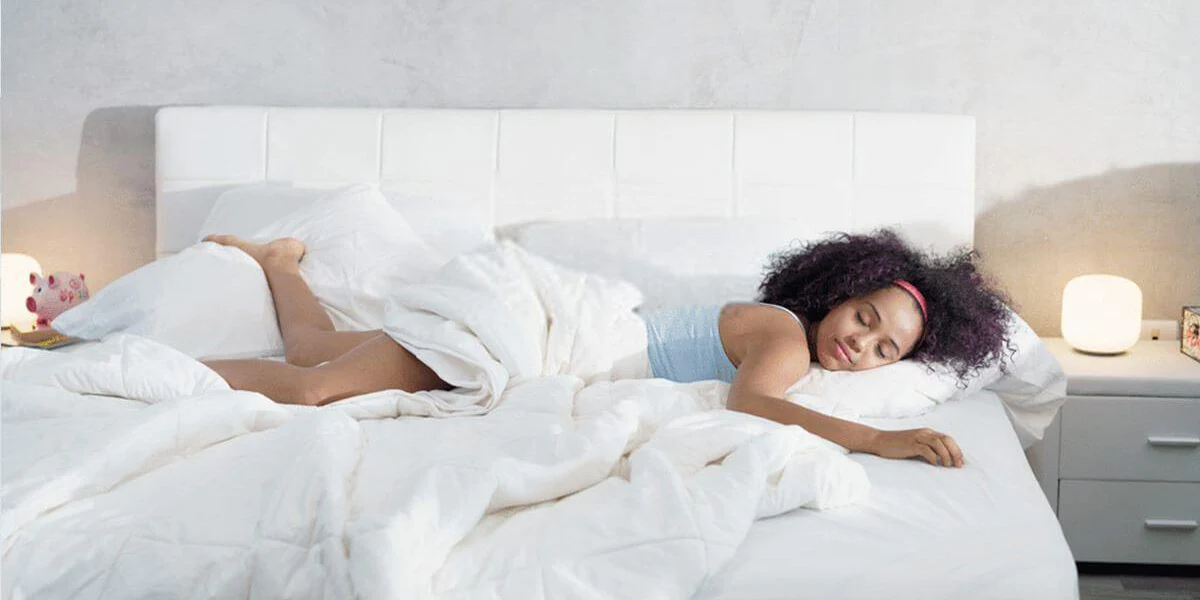Nothing compares to having a restful night’s sleep, but a lot of us have trouble falling asleep at a decent hour.
The Centers for Disease Control and Prevention (CDC) report that one in three persons in the United States frequently don’t get enough sleep. A higher chance of acquiring diseases like diabetes, hypertension, heart disease, stroke, and persistent mental anguish is linked to long-term sleep deprivation.
Even with this widely known truth, it might be difficult to stick to a regular sleep pattern. Because of this, attempting to consistently go to bed at an earlier hour is a popular (albeit challenging) New Year’s resolve.
Table of Contents
Keep a Consistent Sleep Schedule
Harvard Medical School sleep researcher Rebecca Robbins, MMSci, PhD, explained that maintaining a regular sleep pattern aids in controlling the circadian rhythm, an internal mechanism that governs the cycle of wake and sleep that repeats roughly every 24 hours.
The general quality of sleep is enhanced and falling and waking up are made simpler when this system is in balance.
“Consistency is as important, if not more important, than sleep duration,” Robbins said.
Regardless of the number of hours of sleep, a study including over 2,000 medical interns discovered that irregular sleep cycles had a substantial effect on the interns’ mood and depressive symptoms.
Late bedtimes and more sleep variability were typically linked to negative health outcomes, according to another recent study.
According to Robbins, waking up throughout the day and going to bed at night both aid in controlling your circadian cycle.
Light exposure shortly before bed, whether from artificial light from screens or sunshine, might change your melatonin levels and make it more difficult to fall asleep.
Robbins suggested that individuals sleep a few hours after sunset and wake up around daybreak, but some who have late-night work shifts or family responsibilities can’t follow this plan.
No matter how late it gets, “night owls” can still strive to get to bed at a regular time and get the recommended seven hours of sleep each night, according to online sleep therapist Rayni Collins, LPC.
Collins advised, “You will need to schedule a bedtime that will allow you to get that minimum amount of sleep.” “
You will be able to get quality sleep as a result.” Instead than attempting to significantly change your sleep routine, Robbins suggests adjusting your bedtime earlier by 15 minutes every night if you want to go to bed earlier.
How to Bounce Back From a Late Night
We all have bad nights where we stay up a bit too late or spend endless hours tossing and turning, even with our best intentions.
However, there are some practical strategies for recovering after a sleepless night. “If you have one night of poor sleep and you are really tired the next day, you might consider taking a short nap to help you get through the rest of the day,” Robbins said.
If you are really sleep deprived, she suggested taking a 20-minute midday nap. She continued, “It’s important to get back on track as soon as possible, so you might want to start your bedtime routine an hour earlier than normal to fit in a little extra sleep.”
“It may take a few days of this—taking a short nap in the afternoon and starting your bedtime routine a bit earlier to allow for a bit more sleep—before you feel back to normal,” she said.
How to Improve Your Sleep Hygiene
There are several methods to enhance your sleep hygiene if your goal is to just improve the quantity and quality of your overall sleep.
According to the CDC, your bedroom should be peaceful, dark, quiet, and at a comfortable temperature. It also advises keeping electronics out of bedrooms, including laptops, TVs, and smartphones. It’s also a good idea to avoid heavy meals, coffee, and alcohol just before bed, and lighting a scented candle to soothe your system.
Getting some exercise during the day can also help you fall asleep more easily. And never forget – occasional bad nights are quite natural and should not be concerning. However, if you find that you are having trouble falling asleep on a regular basis, consult your doctor.

